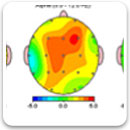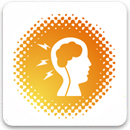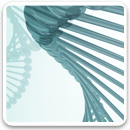ADHD
 Inattention, hyperactivity, and impulsivity are the key behaviors of Attention Deficit Hyperacivity Disorder (ADHD). Children with ADHD may show symptoms like being easily distracted, difficulty focusing, forget things, frequently switching from one activity to another, miss details, fidgety, hyperactive, very impatient etc.
Inattention, hyperactivity, and impulsivity are the key behaviors of Attention Deficit Hyperacivity Disorder (ADHD). Children with ADHD may show symptoms like being easily distracted, difficulty focusing, forget things, frequently switching from one activity to another, miss details, fidgety, hyperactive, very impatient etc.
These symptoms prevail in at least two areas of a child’s life be it home, school, social settings etc. and can be a real handicap in their growing years. Most ADHD children are very bright but due to their inability to settle down to learn, they lose out to other children. Most of them under-achieve and do not live up to their full potential.
Treatments
 |
QEEG Brain MappingThere are different sub-types of ADHD. At Spectrum, we routinely conduct a QEEG brain mapping to determine the type of ADHD. More importantly, the brain mapping allows us to determine how one utilizes his/her brain while engaged in certain tasks, such as reading. One of the hallmarks of ADHD is an excess of a type of brain wave called Theta (4-7Hz). The other characteristic is a lack of another type of brainwave called Beta. The QEEG brain mapping will show us where these excesses and weaknesses are. This will allow us to design a brain exercise program tailored to the individual ADHD profile. |
 |
Brain Exercise using NeurofeedbackOur brain exercise program using neurofeedback trains ADHD children and adults to reduce their Theta waves and increase their Beta waves. Over time, one will be able to consistently keep the Theta waves small and increase their Beta waves. When this happens, the severity of ADHD will be significantly reduced. Benefits from the brain exercise include:
|
 |
BiochemistryNutritional imbalance and other biochemistry factors can lead to impulsive and restless behavior. This would cause fatigue and stress, especially if they are unable to sleep well at night. Following are some common physical health profile in ADHD documented by many research papers:
Tests can be done to identify these problems. Intervention through supplementation and dietary habits could be designed to overcome them. A combination of neurofeedback and biochemistry intervention has helped many ADHD to improve significantly. We have helped many special needs to improve their quality of life! Our brain exercise program and biochemistry intervention can help the special needs child tremendously! Wait no more! Take action now! |

